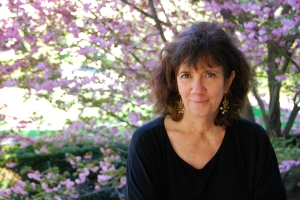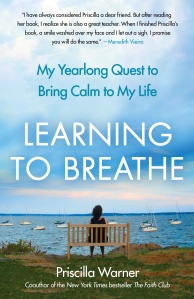 I am so pleased to give you a glimpse into the making of a very wise and insightful writer, Lori Deschene. Ms. Deschene is the creator of the inspirational website, Tiny Buddha, and has built a huge community of followers of her daily blog posts that inform, inspire and help so many. She is the author of the book, Simple Wisdom for Life’s Hard Questions and has recently compiled her wonderful posts into a 5 ebook series.
I am so pleased to give you a glimpse into the making of a very wise and insightful writer, Lori Deschene. Ms. Deschene is the creator of the inspirational website, Tiny Buddha, and has built a huge community of followers of her daily blog posts that inform, inspire and help so many. She is the author of the book, Simple Wisdom for Life’s Hard Questions and has recently compiled her wonderful posts into a 5 ebook series.
1. What has enabled you to get to some of the most fundamental concepts of the human condition – pain, meaning, self-love, to name but a few – and write in such a beautifully simplistic way that resonates with us all?
Well, first, thank you! I’m glad to know my writing does that, and it’s especially flattering coming from you because of how much I admire you and your work.
I generally explore the issues I’ve dealt with, and I try to do so with honesty and self-awareness so that I really get to the root of those fears and struggles. I think that’s the difference between writing that’s compelling and writing that isn’t.
Anyone can write about pain and self-love with a sense of authority or removal, but what really resonates with us is recognizing our own feelings and fears in each other. That requires a willingness to be vulnerable.
On the other hand, vulnerability can be terrifying; but it also facilitates a strong sense of healing, understanding and connection.
As for simplicity, I usually write about everyday experiences and find the larger lessons in those. I think we sometimes forget the little things are the big things – I know I do sometimes. So I strive to shine a spotlight on those.
2. Going through your own personal difficulties, as you share so openly throughout your writings, has given you an ability to help and connect deeply with others. What personal qualities have contributed to this gift of reaching so many people in such an authentic and vulnerable way?
I’d say my emotional rawness is a big one. I am highly in touch with my feelings, which is probably why I do so many creative things; they need an outlet!
There was a time when I didn’t appreciate that I feel things so deeply (likely because I assumed deep feelings had to go hand-in-hand with over-sensitivity, which I’ve since learned isn’t true). Now I see things differently, because it’s that range of emotion that enables me to feel for other people.
Compassion and empathy are big ones, and they come from recognizing myself in others. I think the other side of that is that I want to receive compassion and empathy. I want people to see themselves in me, and appreciate our connectedness.
3. You have incredible wisdom as revealed in your written words. How, in your youth, have you gleaned such priceless wisdom?
Thank you! I’ve gleaned wisdom the same way I imagine we all do: I’ve hurt, and I’ve tried to learn from it so that I hurt less – and as a result, hurt other people less.
4. What are a few really important factors in creating a good life despite one’s struggles/difficulties?
Mindfulness– focusing to the best of our ability on what’s in front of us, instead of dwelling on what happened yesterday or worrying about what might happen tomorrow.
Connection– letting people in, sharing our struggles with each other, and enjoying each other so that our struggles don’t consume our lives.
Forgiveness/self-forgiveness – letting go of feelings of bitterness and resentment so we can create room for peace and joy.
5. How can we examine and observe our own lives so that we can live in a more conscious and rich way?
I think it’s about finding a balance between examining and just being. I say this because, as a writer, I have a tendency to overanalyze.
At times, this has served me well, as it’s helped me understand myself and learn about what I need to do to be happy. At other times, I’ve gotten too caught up in my head, trying to figure everything out, to really appreciate what was right in front of me.
To create a balance between self-reflection and action, we need to be mindful of how we spend our time so that we devote some of it to contemplative activities, like meditation and journaling or blogging, and some of it to engaging with the world.
It’s about creating space to learn our lessons and apply them – and also allowing ourselves room to be, explore and play in ways that enrich our spirit.
6. Your books are sprinkled with tips and show us different and new ways of looking at things. Please highlight one from each of these 5 books.
Tiny Wisdom: On Self-Love
Stop justifying your feelings. This is a reminder that helps me when I judge my emotions and then feel as though I need to explain them to other people – as if I’m not allowed to feel sad, frustrated, or anything else I might be feeling other than happiness. When we accept our feelings, it’s a lot easier to work through them and let them go.
Tiny Wisdom: On Happiness
Recognize we choose what we see. There’s a lot going around us at any given time, far too much to take in all at once. We can focus on everything we think is wrong with the world, or we can recognize everything that feels right – and in doing so, increase our odds of creating and attracting more of it.
Tiny Wisdom: On Mindfulness
Cling less and enjoy more. I wrote this post about my experience in Las Vegas. Surrounded by opulence, I recognize a stark contrast between that world and my own modest home and lifestyle. I’ve realized, however, that we can’t fully appreciate beauty if we’re trying to hold onto it all. We have to let go of that need to cling to fully enjoy what’s in front of us.
Tiny Wisdom: On Love
Treat people how they want to be treated. We all know the old adage “Treat people as you want to be treated,” but this disregards the fact that we’re all different – and we all want to be treated differently. When we consider the unique needs of the people we love, we’re better able to be there for them in a way that really helps; and we teach them to do the same for us.
Tiny Wisdom: On Pain
See the good in the bad. Research shows that people who identify lessons from painful events are able to move on more quickly because they can see their experiences as somehow useful, as opposed to victimizing themselves. If we can see the good in the bad, we can grow not in spite of it, but because of it, and improve our lives and ourselves in the process.
Lori has graciouslyoffered a free give-away of her new e-book series to one reader. If you would like to enter into the read-away random pool drawing on Wednesday, Aug. 22nd at 10 pm (EST), please share ( in the Comment section) an insight or slice of wisdom that helps guide and shape your life.
















